- News
LaterMost ReadDistinctiveRohingya News Agency: Myanmar: Tens of thousands of Rohingya people - who remain deprived of a nationality - displaced by “clearance operations” amid reports of unlawful killings, indiscriminate firing on civilians, ...
- Issues
Most ReadDistinctive
- Books
- Documents
LaterMost Read
- Figures
- Entries
Most ReadDistinctiveShwe Maung, Former Myanmar MP November 15, 2016 Myanmar Security Forces are enjoying to kill Rohingyas including children, rape women and torching and destruction Rohingya houses and villages after the " October ...
- Arakan
Burma agrees to take back Rohingya refugees
Tuesday | 02/09/2014 - 09:26 AM
Rohingya News Agency - (KPN): Burma has agreed to take back a small number of 2,415 out of over 32,000 registered Burmese refugees, known as Rohingyas, who have been living in two camps –Kutupalong and Nayapara – under Cox's Bazar district for decades, according to Foreign Secretary Md Shahidul Haque’s press briefing at Foreign Ministry office on August 31st.
The decision was conveyed at the secretary-level meeting, known as 'Foreign Office Consultation' (FOC) on August 31st at Bangladesh Foreign Ministry office.
Deputy Foreign Minister of Burma U Thant Kyaw, who is on a five-day official visit, led the seven-member Burmese delegation while Foreign Secretary Shahidul Haque headed the 10-member Bangladesh delegation for FOC, according to foreign ministry official.
The foreign secretary, Haque, believed that by agreeing to take back Burmese refugees again mean, "Burma acknowledged that they were their citizens".
Foreign Secretary Haque told journalists at press briefing, after the meeting both sides agreed on a number of measures to take the relations forward. The meeting was held in "open, frank, and cordial" manner that indicated "greater understanding between the two countries".
Burma side was not present at the press briefing.
The Burma would start the process of taking back 2,415 Rohingya refugees who verified earlier, said the Foreign Secretary. “Both sides wanted to strengthen the relations. It's (start of repatriation) a breakthrough.”
Dhaka raised the issue of documented Rohingya refugees as well as the significant number of undocumented Burmese nationals living in different parts of the country. About 32,000 registered refugees have been living in two camps in Cox's Bazar along with 300,000 to 500,000 undocumented Burmese nationals, the foreign secretary told his Burmese counterpart.
According to official estimates, about 250,877 Rohingyas fled to Bangladesh in 1991 following persecution by the military junta. Of them, 236,599 were repatriated through bilateral negotiation between Bangladesh and Burma with the UNHCR supervision till 2005. The process halted after a group of 92 Rohingyas was sent back that year, according to sources from the Refugee Relief and Repatriation Commissioner (RRRC).
Official sources say about 19,841 Rohingyas from 2,976 families were at the refugee camps in 2004. The number kept rise every year due to their high birth rate.Now, over 32,000 Rohingyas reside at two camps in Kutupalong in Ukhia and Nayapara under Teknaf in Cox's Bazar district.
During the meeting, Dhaka sought a specific time-frame for the resumption of the repatriation that has remained halted since 2005 and reiterated its earlier proposal to form a joint working group to deal with this issue.
“The Burmese side agreed on both the issues. They (Burmese delegation) said that the joint working group may meet in two months to initiate the process,” according to sources present in the meeting. “We have never seen such a positive attitude from the Burma side. He (Thant Kyaw) surely has come with a mandate to give something to Bangladesh.”
The foreign secretary, however, would not make any "hypothetical comment" on whether Burma would take back all of its nationals.
The joint working group contain members from both counties and international organizations would work on the repatriation process. Both sides also decided to form a joint commission to discuss bilateral issues at the foreign ministers' level.
Bangladesh felt that all the aspects should be brought under an umbrella framework and proposed signing of a “Framework Arrangement on Trust and Cooperation for Development between Bangladesh and Burma,” said the foreign secretary.
He said it contains eight components -- strengthening the trust or enhancing the trust, security and cooperation dialogue, trade and connectivity, energy, environment and natural disaster, agricultural and rural development, education, health and culture, sub-regional cooperation and collaboration in the Bay of Bengal.
The Burma side highly appreciated it and said that it will be reviewed at the Joint Commission meeting next year when the foreign minister of Burma will visit Dhaka.
The Bangladesh side raised the issue of smuggling of yaba tablets into Bangladesh and Burma denied the allegation of existence of any yaba-producing factories in the bordering areas. Bangladesh, in reply, said that it would provide Burma with a list of such factories with their addresses.
In response to Burmese's claim of the existence of anti-Burmese outfits operating from Bangladeshi territory, Dhaka reiterated its stance that Bangladesh do not harbor any such outfits and it will not interfere in the internal affairs of Burma. Both nations will have to work together to deal with the issues related to trans-national crimes and other criminal activities, Dhaka told the Myanmar side.
“On security cooperation and border management, the Myanmar side was very congenial,” said an official.
Burma side said in the meeting, it wants to send two teams to Bangladesh to learn from Bangladesh's success in agriculture and livestock sectors.
According to officials, both sides would discuss trade and commerce issues and try to identify the barriers apart from discussing connectivity issue in a broader sense in the context of BCIM (Bangladesh-China-India-Myanmar) and Bimstec (The Bay of Bengal Initiative for Multi-Sectoral Technical and Economic Cooperation).
التعليـــقات
Comments published does not reflect the opinion of the agency, but reflect the opinion of their owners

New Agency
Articles
Books
Mailing List
Search























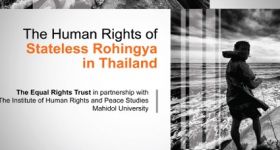








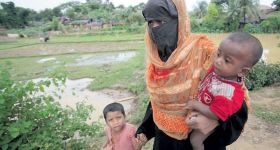









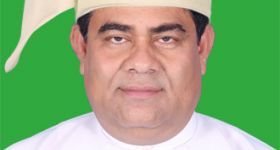
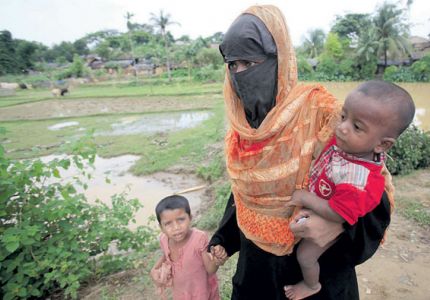

 Turkish charity continues delivering aid to Rohingya
Turkish charity continues delivering aid to Rohingya








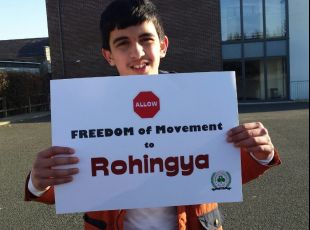
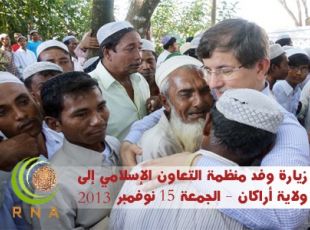
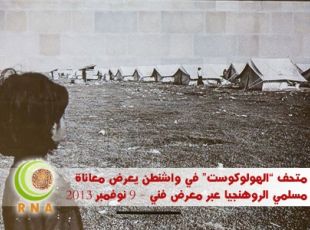





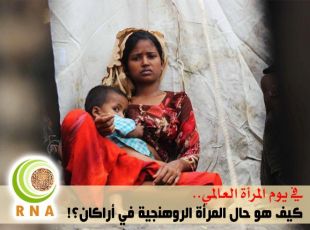


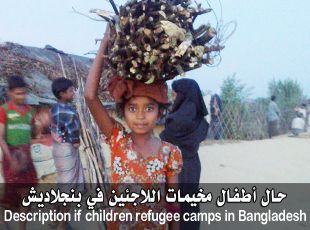














 Report: The Human Rights of Stateless Rohingya in Thailand
Report: The Human Rights of Stateless Rohingya in Thailand

